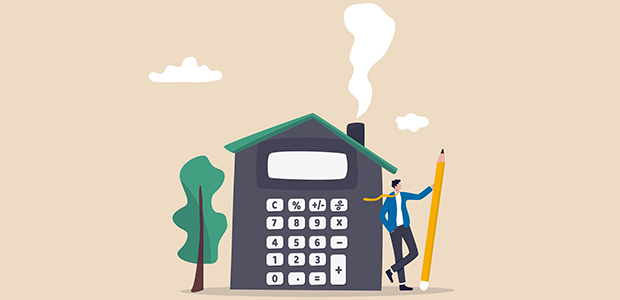
Just a quarter of first-time buyers would opt for a 100% mortgage
Research from the Gradual Homeownership provider, Wayhome, has found that while high house prices and the initial cost of a mortgage deposit are the biggest obstacles currently facing the nation’s first-time buyers, just a quarter would be willing to consider a 100% mortgage in order to get a foot onto the property ladder.
This week, Skipton Building Society became the first lender to re-introduce the controversial 100% mortgage, allowing first-time buyers to secure a mortgage without a deposit or a guarantor, for a five year fixed term and at a rate of 5.49%.
However, buyers are only allowed to borrow up to 4.49 times their income to a maximum of £600,000 over a 35 year term. This means those looking to secure the maximum loan of £600,000 would need a household income of £133,630 to qualify and, with the current estimated average household income sitting at just £42,279 across England and Wales, it means the average first-time buyer could only utilise a 100% mortgage for a property worth £189,833.
The need for many first-time buyers to secure an additional financial foot up on the ladder is clear, with a survey of those who purchased their first home in the last year, commissioned by Wayhome, finding that a lack of affordable homes and the cost of a mortgage deposit were the two biggest obstacles, along with the ongoing cost of repaying a mortgage.
But despite this, just 26% stated that they would have considered a 100% mortgage when looking to buy their current property. Just 21% also stated that they would be prepared to pay a higher monthly mortgage repayment simply to secure a 100% mortgage.
What’s more, only 28% were actually aware of just how much more a 100% mortgage would cost them each month. Additional research by specialist finance experts, Octane Capital, has shown that those utilising Skipton’s 100% mortgage face an average monthly repayment of £1,465 based on the current average first-time buyer house price of £238,742. That’s £369 more a month than the £1,096 for those securing a mortgage with the average first-time buyer deposit of 15%.
Perhaps most worrying is the fact that just 36% of those surveyed were aware that opting for a 100% mortgage would make them more susceptible to falling into negative equity. However, 70% did state that when looking to purchase their first home, they were aware of the other options available to them such as Gradual Homeownership or shared ownership.
Co-founder and CEO of Wayhome, Nigel Purves, commented: “With interest rates climbing and house prices remaining at record highs, the nation’s beleaguered first-time buyers will no doubt be jumping for joy at the prospect of a 100% mortgage. However, the devil is very much in the details and those considering one should be fully aware of just what they are signing up for before taking the plunge.
Not only are you unlikely to qualify for a mortgage on the house you actually want due to income limitations and lending caps, but those that do make the cut face a far higher monthly repayment cost as a result.
With the market also showing signs of cooling in recent months, there’s a very real chance you could find yourself falling into negative equity at the slightest sign of a house price downturn.
Yes, it’s a monumental task to get that first foot on the ladder, but as our research shows, those to have accomplished it over the last year would, for the large part, steer clear of a 100% mortgage if they were to do it again.”

